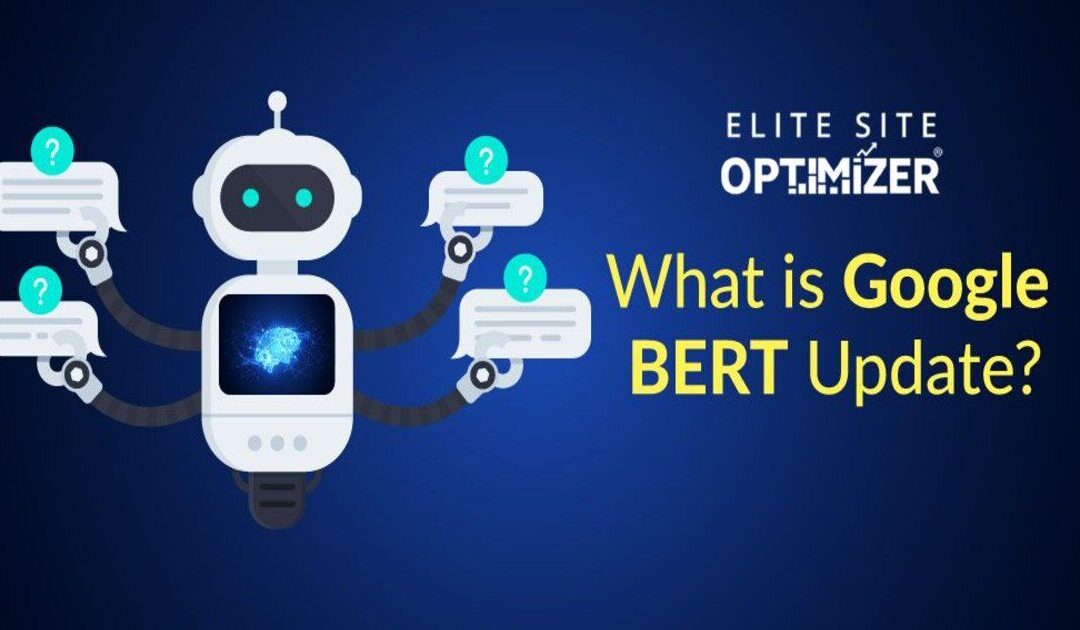Google introduces various updates time-to-time to enhance the users’ search experience. The latest update is Google BERT Update. With a modified broad keyword match, the overall result comes out to be a bit confusing for searchers. BERT update seems to provide a solution for this. The update has worked towards enhancing the interpretation quality of long-tail keywords. It has impacted the results of on-page SEO activities too. Let’s explore a little more information about this new update from Google.
What is the BERT algorithm?
BERT stands for Bidirectional Encoder Representations from Transformers. Its algorithm transforms functions using features of neural networks. With an AI-enabled algorithm that works using Natural Language Processing (NLP), BERT brings together machine learning’s unbiasedness. And the naturality of human language to arrive upon more correct interpretations. Thus, with the BERT algorithm, the search engine has geared up to deliver the results based on a more natural and obvious interpretation of the search phrases.
In simpler words, the BERT algorithm enables the search engine to emphasize contextual meaning and provides results accordingly. Why is it able to do so? Because its working is based on mathematical models popularized as transformers. These interpret the keywords or words of the key phrase while keeping the mutual context in focus rather than interpreting them individually. This algorithm’s direct impact will be that even the helping verbs or prepositions used in the search phrase will be contributing to interpretation.
BERT and On-Page SEO
Previously, the website owners or SEO managers struggled with lots of irrelevant traffic coming to the site. The reason was long-tail keywords not interpreted as expected.
For example, when someone searched for ‘how to reach Fiora from Santorini port,’ the results mostly showed how to reach the port from Fiora. Thus, neither the websites providing information were getting the traffic, nor did users get what they wanted from their search. This problem has found a new solution in BERT. Now, the small words like ‘to’ also will be interpreted concerning other words. It is likely to deliver more relevant results.
Accordingly, On-Page SEO experts will now be required to put more lucid, more meaningful, or naturally built sentences in the page’s content. They will have to choose the straightforward, simple-to-understand content, quite close to spoken language. In short, the content will have to be transformed contextually.
Another reason to give weightage to BERT is that Google now offers alternative input methods too. The users now have the choice to employ voice search. There are voice recognition-based home assistants also available where the results are delivered based on diction, dialect, or accents. That is why an algorithm based on a natural language processor is the most time-relevant change made in the search engine functioning.
Significant impacts of BERT algorithm on SEO results
One thing quite obvious to derive from the discussion above is that SEO people now need to work more on keyword search and transform their PPC strategy accordingly.
Some of the direct outcomes of the BERT algorithm will be:
-
Websites that target irrelevant keywords will face a dip in rankings
The BERT algorithm will ensure that the most relevant content, which is easily understandable and direct in meaning, reaches the searchers. Thus, the pages that won’t have high quality, relevant and meaningful content will show a downfall in keyword rank.
-
Long-tail keywords will now be a priority
Since the algorithm will pick only the content that shows characteristics closer to natural human language, the long-tail keywords will become more crucial for SEO’s success.
Google BERT is a new strategy driver that will show a more direct impact on SEO performance. Thus, all SEO experts need to gear up the content enhancement strategy to help their clients stay in the game.
Related Posts
Post does not have featured image





